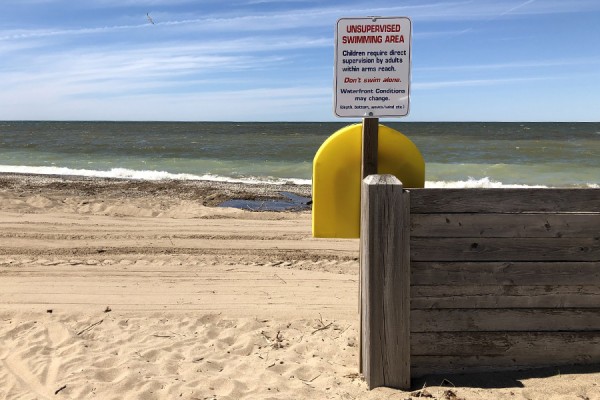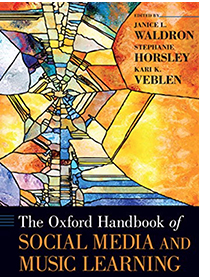 Research by science dean Chris Houser and Master’s student Brett Vlodarchyk found a significant increase in surf-related drownings on the Great Lakes this summer. Once stay-at-home orders were lifted in Ontario, Michigan, and other U.S. states, COVID-fatigued people flocked to beaches near major centres.
Research by science dean Chris Houser and Master’s student Brett Vlodarchyk found a significant increase in surf-related drownings on the Great Lakes this summer. Once stay-at-home orders were lifted in Ontario, Michigan, and other U.S. states, COVID-fatigued people flocked to beaches near major centres.
It has been a deadly summer on beaches along the Great Lakes, with significantly more drownings than in pre-COVID years, a pair of UWindsor researchers has found.
Chris Houser, UWindsor’s dean of science and an expert on rip currents, has co-authored a research paper with Master’s student Brent Vlodarchyk that found there were 24 more drowning deaths on the Great Lakes this year than average. Dr. Houser and Vlodarchyk found the number of drownings were lower than the historical average early in the pandemic, but the number began to increase as stay-at-home orders were lifted.
“It is argued that self-isolation fatigue resulted in large beach crowds,” said Houser. “This, combined with warm weather, high water levels, and reduced local lifeguard resources, increased the risk of drowning.”
Houser and Vlodarchyk studied data up to the end of September for 2010 to 2019, comparing drowning deaths in those years to surf-related drowning deaths to the end of September 2020. The greatest increase in drownings were in Lake Michigan with 37 deaths, an increase of 14 deaths over the historical average of 23. There were 11 more drowning deaths than average in Lake Ontario this year and four more in Lake Huron. There were slightly fewer deaths on Lake Erie and no change in the number of deaths on Lake Superior.
“The timing of the drownings in Lake Michigan and Lake Ontario appear to be associated with the early reopening phases of Illinois, Indiana, Michigan, and Ontario,” the two write in their research paper. “Specifically, as stay-at-home orders were lifted and residents were able to visit the beach, there was an increase in the number of drownings close to the main city centres.”
Most deaths occurred on Saturdays, suggesting people were visiting beaches close to home, not away on holiday. Drownings on Lake Ontario occurred at popular beaches within a short drive of Toronto.
During his undergraduate studies, Vlodarchyk developed a model to predict the number of drownings based on summer air temperature, precipitation, and ice coverage in the previous winter which relates to lake temperatures. He and Houser believe the pandemic is responsible for the increased drownings because the increase could not be attributed to the warm summer weather this year.
The researchers suggest lifeguards were either not present — in some cases due to cutbacks — or distracted by having to maintain social distancing among beachgoers. Beachgoers’ behaviours may have become more reckless during the pandemic, leading them to ignore or simply not notice posted warning signs. This could be a result of what’s being referred to as COVID fatigue.
Understanding how the pandemic directly and indirectly affecting beach drowning is an important lesson for beach management during a future public health emergency, the researchers said.
“We argue that beach safety cannot be sacrificed in a future public health emergency by budget cuts or by reducing the focus on lifeguards with the enforcement of social distancing.”
—Sarah Sacheli



 She explores the ways which social media is now firmly engrained in all aspects of music education in
She explores the ways which social media is now firmly engrained in all aspects of music education in 
